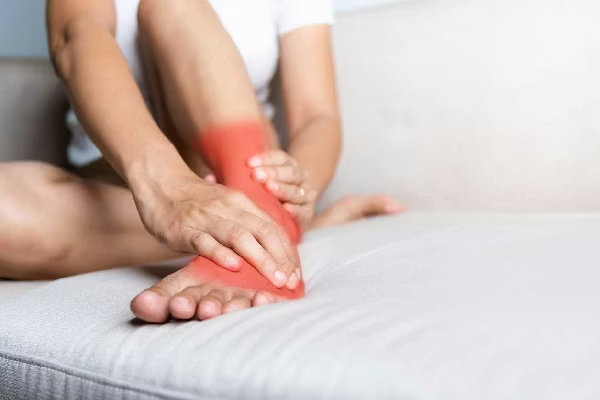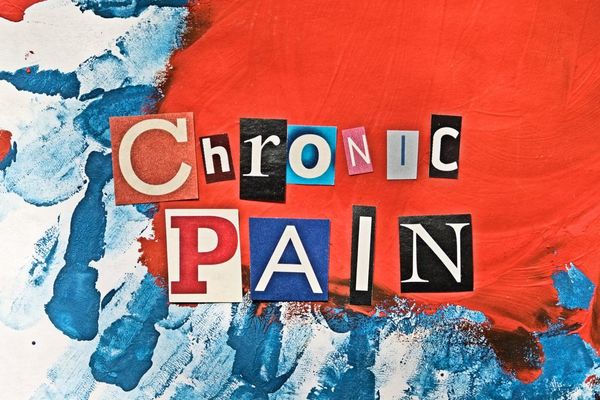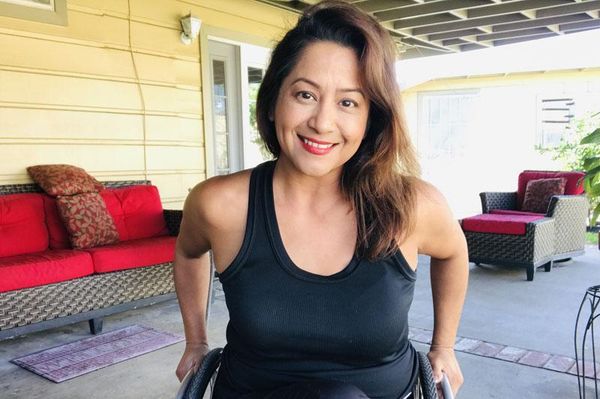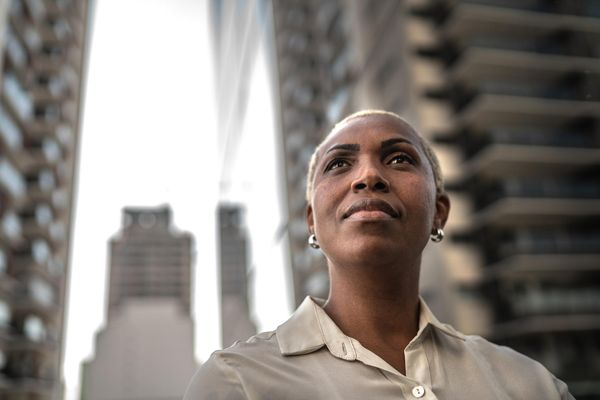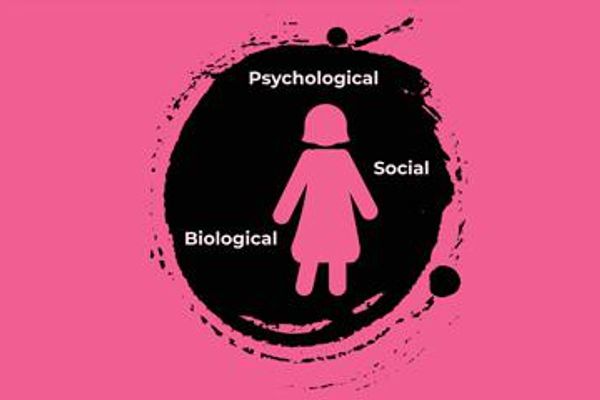This article has been archived. We will no longer be updating it. For our most up-to-date information, please visit our chronic-pain information here.

Approximately one in four Americans suffer from chronic pain. I'm one of them. I live with chronic neck and head pain. I've tried fusion surgery, 41 nerve injections and many kinds of medications, none of which have worked. At my worst, I was bedridden, unable to work and couldn't take care of my children. Now, three years later, I have regained my life. I write about this journey in my memoir, The Body Broken (Random House, 2009). I learned a lot in those three years and hopefully some of what I learned can help you, too. Here are my Top Eight Tips for combating chronic pain:
Tip #1: Take Back Control
Research pain management strategies. Try different techniques—Western and non-Western. Be holistic in your approach. Pick and choose methods. If your doctor isn't helping, research other doctors. If the medication you are on isn't working, try other medication. I have learned that no one procedure, no one pill is adequate, so I fight pain with an arsenal of weapons.
Tip #2: Rethink Work
Unfortunately, 50 percent of chronic pain patients lost their jobs in 2007 because of their pain, but it's important to remember that your skills are transferable. What can you still do? What are you good at doing? Think about what work is still realistic and try to do just that.
For example, I used to write academic criticism. That is no longer a daily possibility. I still love writing—and can do it. So I write on other topics that are still manageable for my concentration levels. A woman I know used to work full-time as a therapist until her pain made that job impossible. She now has an online counseling business. She reads and responds to e-mails on her own time and schedule when her pain permits her to do so.
Tip #3: Be Realistic: Pace Yourself
Chronic pain definitely affects your energy level and concentration. I personally can't do as much as I used to do. Pain makes a full day of work, parenting, socializing and domestic responsibilities impossible.
I have learned that I have to pace myself and be realistic about my stamina. Sometimes, saying no is necessary. Sometimes it's best not to try do everything in one day, but rather spread things out over a longer time. Asking for and receiving help—from a friend, a colleague, a family member or someone you pay—is an important fallback.
Tip #4: Protect Your Body from Further Damage
Chronic pain is considered a disease. The body releases negative hormones like cortisol that adversely affect the immune system and kidney functioning. With a weakened immune system, you may develop further injuries, damage and health problems.
So it's important to take care of yourself. Vitamins, healthy eating and regular visits to your doctor to maintain your body are essential to combat these ancillary problems.
Tip #5: Exercise
Endorphins are the most powerful form of pain medication that exists. They flood the body with well-being and heal the mind just as much. Because my pain is related to spinal conditions, the forms of exercise that most benefit me are dance classes, Pilates and stretching. If you have a condition that restricts your movements, you will have to be creative about what forms of exercise are realistic. Maybe only 20 minutes of slow walking a day is possible. Whatever form of exercise you choose, your goals should be to find exercises that compensate for your pain condition by building strength elsewhere; keep your heart healthy; and do not further damage your health.
Tip #6: Adequate Sleep
Chronic pain can affect your ability to sleep well (which, of course, also affects your ability to live a functional life). So it's important to train your body to sleep again at the normal time. Establish a regular schedule and routine for sleep. Go to bed at the same time every night and get up at the same time in the morning. Have rituals before going to bed that relax the mind and body—soft music, a soothing cup of tea, reading or watching television. Splurge on delicious sheets and blankets that make your bed a haven. By reestablishing a normal sleep schedule, you have more energy and stamina to handle all of life's commitments.
Tip #7: Hobbies
When you're lying in bed, your mind may have nothing else to do but focus on your pain. It obsesses about the pain, and therefore you suffer even more.
Force yourself to get out of bed and experience life again. Go to a party, sports event, play or concert. Stay connected to your hobbies and interests. Take that painting class you always wanted to take. Take your son to his soccer practice. These activities can reconnect you to the land of the living and remind you of what in life is most worth savoring. Distractions help keep the mind occupied with matters other than just the pain. They may even allow you to forget about the pain for that temporary period.
Tip #8: Carpe Diem
It's normal to feel depressed when living with chronic pain. Seeking out joy and consciously finding happiness are important to feeling good. Make family and friends a priority and relish those relationships. Participate in their activities and remember your own passions. For me, being appreciative of what I do have helps combat my feelings of loss. Nevertheless, it is essential for chronic pain patients to have adequate psychological support, whether that is a trained therapist or psychologist, antidepression medication and/or a support group.
My life has been altered irrevocably by my condition. Nevertheless, I am mindful that I don't have a monopoly on life-changing situations. Despite the hardships, my condition has led to new joys that would never have come my way. I wouldn't be surfing with my son or writing with my daughter, for example, had I not decided to throw myself back into their—and my own—passions.
For more about Lynne and The Body Broken visit www.lynnegreenberg.com.


